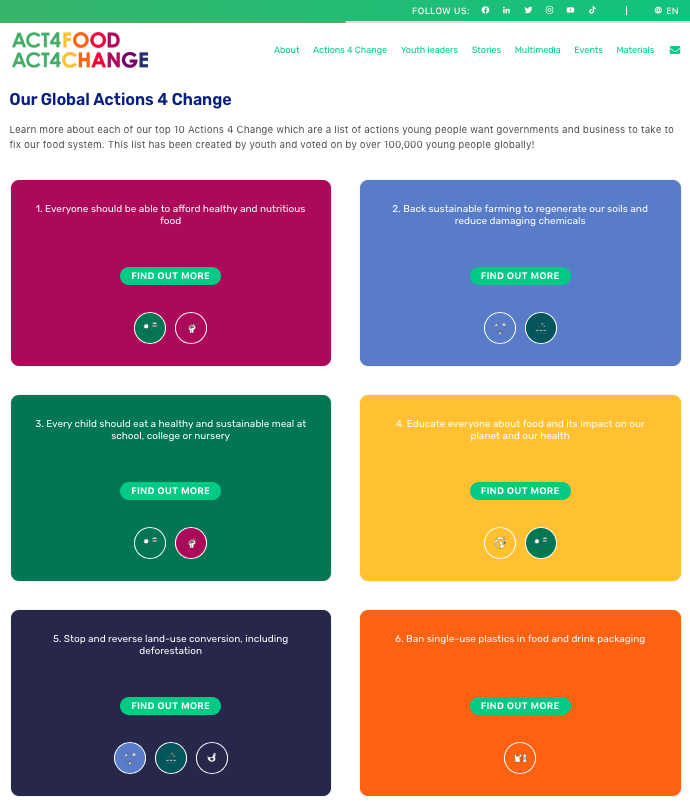Highlighting youth engagement projects, work & efforts in food system transformation
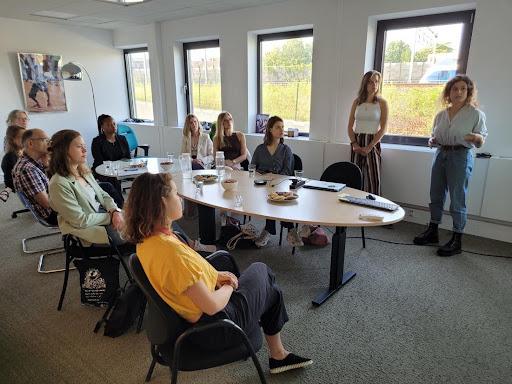
Wageningen Academic Consultancy Training (ACT Group)
Wageningen University (the Netherlands) provides an opportunity for Masters students to receive credit for an 8-week consulting project called the Academic Consultancy Training (ACT). The ACT team researched emerging innovations on the consumer side and how these can contribute to driving food systems towards healthier and more sustainable diets. These results help to inform interested parties (such as USAID) in gaining insights into initiatives for future investments. Eight Nutrition & Health Master’s students worked with the IFSS Portal core team and the Food Systems for Nutrition Innovation Lab at Tuft’s University to source consumer-facing innovations linked to the personal and external food environment for potential scaling in specific low-resource settings. The students originally sourced 138 innovations (technologies, practices, tools, products) and focused on 39 in their Final Project Report at the GAIN Netherlands office to the larger GAIN staff. The 2-month course involved co-learning sessions around the IFSS portal's backcasting tool, stakeholder interviews, and building skillsets around food systems change at the regional level.
Student project: Mapping "42 Policies & Actions" to innovative solutions
This Wageningen University Master's student research project tested and strengthened the IFSS portal solution search directory and mapped innovative solutions to the 2020 Food Policy Council's "42 policies and actions to orient food systems towards healthier diets for all" to help make these concepts more actionable. The mapping and bundling of policies and actions to concrete solutions triggered a conversation between the core teams at the IFSS portal and the Food Systems Dashboard (FSD) and started a discussion during the ANH Learning Lab Conference on different ways to move searches (with structured taxonomies and priortized keywords) towards concrete actionable solutions in real-world contexts, taking into consideration the multiple impact targets across dietary health, environmental sustainability and equity. The image to the right is an exampel of primary and secondary "bundles" of solutions that fit FSD action 42 ("Align all food systems policies and programmes with food-based dietary guidelines") based on the mapping methodology for Ethiopia.
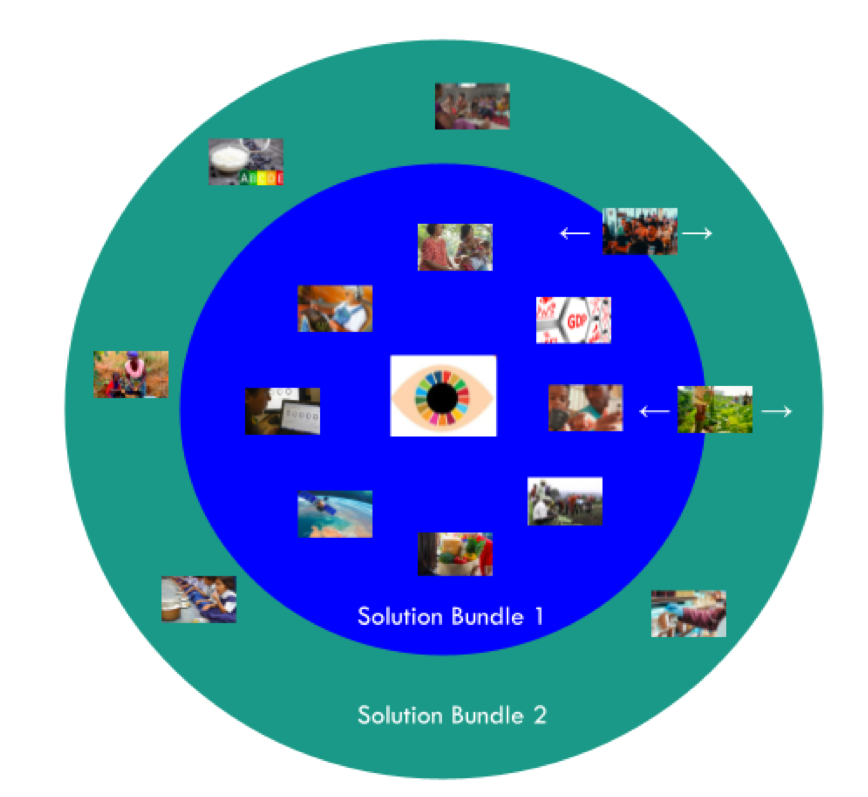
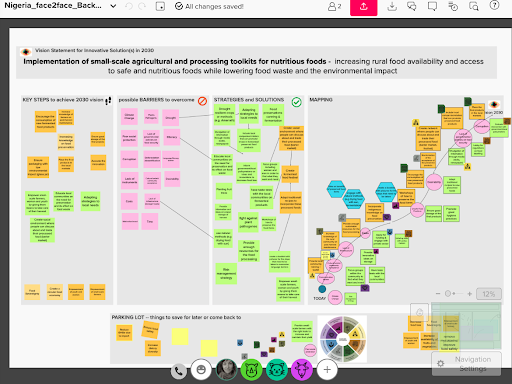
Wild Futures Project: Backcasting to Strengthen Innovation Case Studies
The Wild Futures Project is led by colleagues at Cornell University’s Department of Global Development, part of the College of Agriculture and Life Sciences, and supported in part by funding from the Bill & Melinda Gates Foundation. The goal is to support expanding the climate adaptation options for smallholders through transformational innovations and develop tools to help inform food policy while also building in rail guards to try to avoid the worst unintended consequences of more radical change. Cornell graduate students and researchers developed pathway-to-impact maps for multiple innovative food system solutions using the IFSS portal backcasting approach that triggered critical & applied systems thinking. The process used here helped to identify key constraints and challenges to innovation at scale, and improve innovation foresight to anticipate unintended consequences to build bundles of innovations including policies and regulations to enhance the positive outcomes while mitigating the negative outcomes.
Youth researcher project: Innovations for community-based risk management in Sri Lanka
Cereals form an important proportion of dietary energy in Sri Lankan households, representing key sources of fibre, vitamins and minerals the contribute to community dietary health and reducing rates of undernourishment in children and youth. A dedicated member of the IFSS portal youth research team developed a pathway-to-impact map for a community-based risk management strategy around cereal banking with the aim to increase availability and accessibility of food staples to local rural communities in Sri Lanka during food system disturbances. This independnet youth research project was used to train and facilitate working sessions on World Innovation Day on 21st April 2022 for the 33 core youth country leaders of Act4Food/Act4Change’s conference held in Kenya.
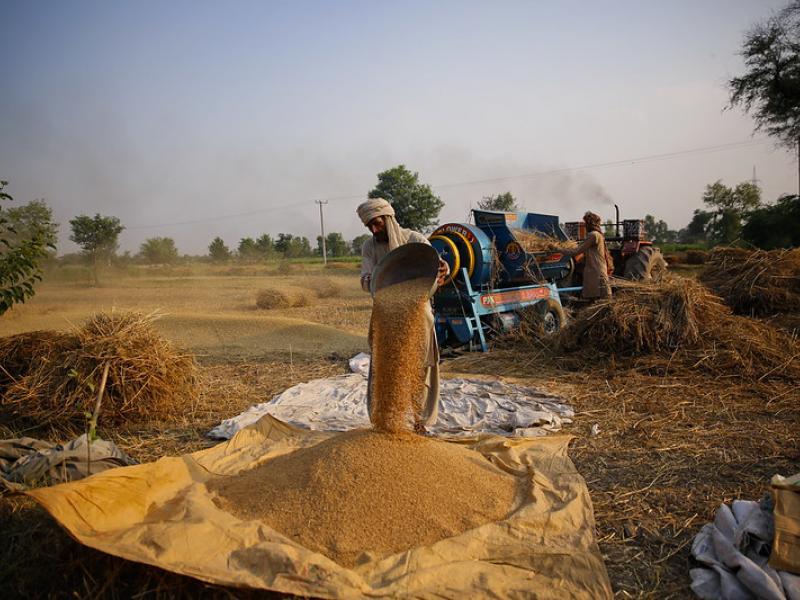
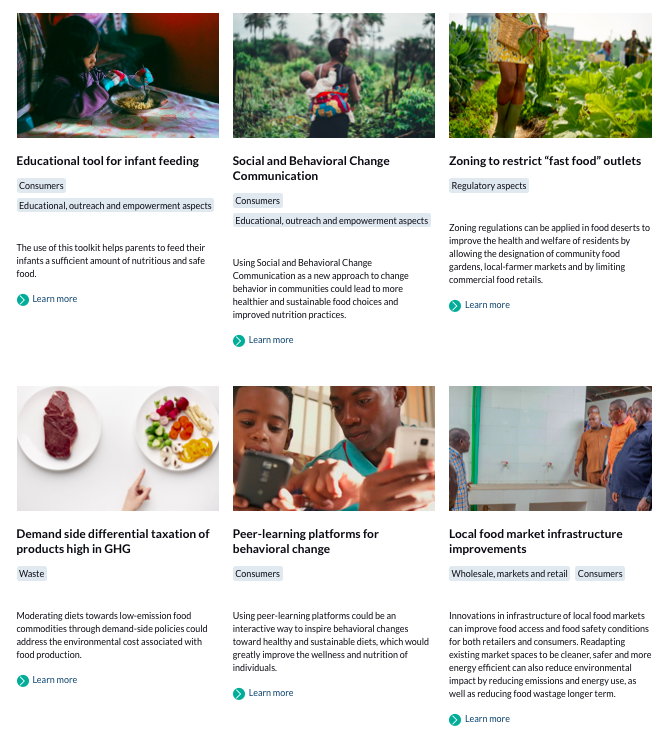
Youth researcher project: Innovations in the food environment
A large percentage of the innovative food system solutions currently included in the IFSS portal inventory so far focus on the production and supply side of the food system, with only a limited number of innovations that are more "consumer-facing ." Youth researchers with the IFSS portal team have been sourcing and drafting additional solution profiles to help fill this gap post-farm gate, with a focus on retail promotion and the food environment. Each solution profile page includes details about the solution itself, impacts on dietary and planetary health, and the potential to improve equity.
Research project: Mapping Act4Food/Act4Change's 17 actions to the IFSS portal solutions (with NutritionConnect)
Act4Food/Act4Change identified a list of key actions that young people want governments and business to adopt to fix our food system. This list was created by youth and voted on by over 100,000 young people globally in 2021 and 2022. An IFSS youth ally creatively mapped the 17 Act4Food Actions to the IFSS portal solutions and proposed a strategy that could turn these 17 goals to real youth-led on the ground projects. For example. Act4Food Action # 7: Back sustainable farming to regenerate our soils and reduce damaging chemicals was mapped to Regenerative Agricultural Practices, Non-organismal soil supplements and additives, Human waste recovery to utilize as fertilizer, Agroforestry for fruit production & soil health, Intensive households gardening, Integrated households poultry-vegetable farming.
